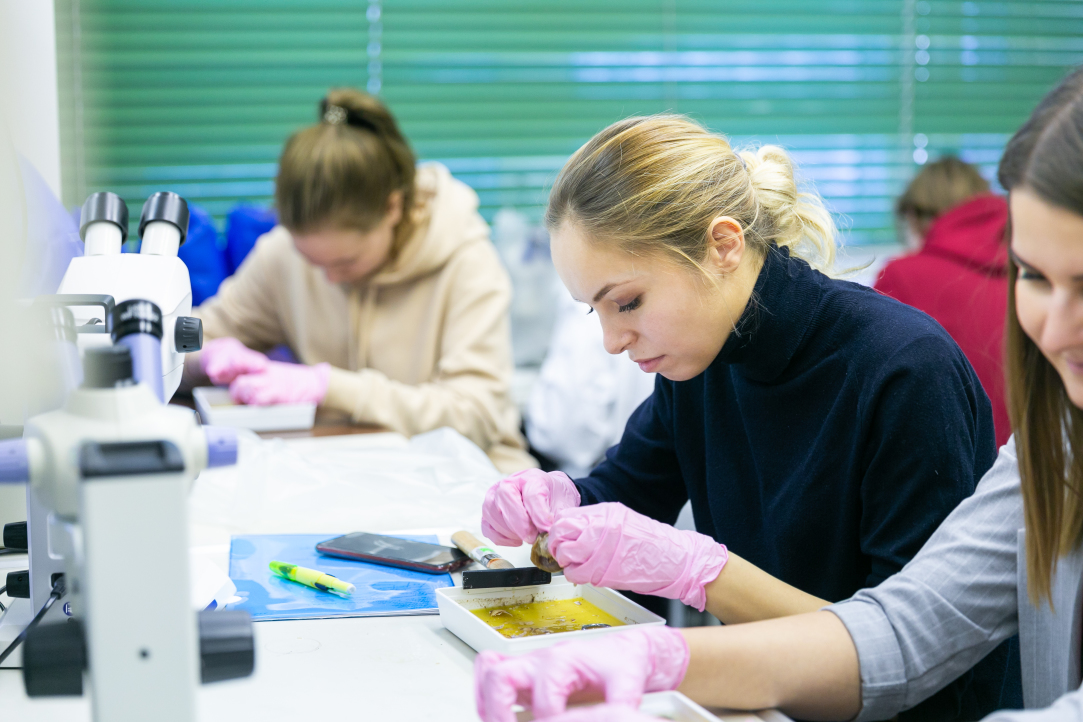
Brain Activity Can Reveal the Severity of Autistic Traits
A team of researchers from Russia and Israel applied a new algorithm to classify the severity of autistic personality traits by studying subjects’ brain activity. The article ‘Brief Report: Classification of Autistic Traits According to Brain Activity Recoded by fNIRS Using ε-Complexity Coefficients’ is published in the Journal of Autism and Developmental Disorders.

Planning for Babies: How Many Children Russian Families Would Like to Have
Over the past quarter-century, the socially accepted reproductive norm has hardly changed in Russia: most people still believe that two children per family is the ideal. The reality, however, is more diverse, and both largeand childfree families are increasingly commonplace. A new study by HSE demographers looks at changes in public opinion in Russia between 1995 and 2019 concerning the optimal number of children in the family.

Ageing Forever: How Ageing of Population Affects Economics
The ageing population may turn into a serious challenge despite seniors' improving physical and mental health. Rostislav Kapelyushnikov, Deputy Director of the HSE Center for Labor Market Studies and Corresponding Member of the Russian Academy of Sciences, looked into the causes and possible consequences of falling birth rates and longer life expectancy.

Experiment Shows How Our Visual System Avoids Overloading
Russian researchers from HSE University have studied a hypothesis regarding the capability of the visual system to automatically categorize objects (i.e., without requiring attention span). The results of a simple and beautiful experiment confirmed this assumption. The paper was published in the journal Scientific Reports. The study was supported by a Russian Science Foundation grant.

Nearly 2,000 Papers, 23 Nominations, and 165 Winners in 2020 Student Research Paper Competition
The annual awards ceremony of the Student Research Paper Competition (NIRS) was held on February 8, Russian Science Day. This year, 165 people received awards, including not only HSE students but also contestants from Saint Petersburg State University, Moscow State University, Far Eastern Federal University, Mount Holyoke College (USA), and other universities. Another 160 participants became laureates of the competition, with 1,924 papers submitted in total.

Can the Brain Resist the Group Opinion?
Scientists at HSE University have learned that disagreeing with the opinion of other people leaves a ‘trace’ in brain activity, which allows the brain to later adjust its opinion in favour of the majority-held point of view. The article was published in Scientific Reports.

Russia’s IT Industry: New Challenges and Post-Pandemic Opportunities
Alarmist forecasts have not come true: the Russian IT industry did not suffer as many losses due to the pandemic as had been expected. But the pandemic increased the need for digital products and made some old problems more acute. What should be done to accelerate the industry’s development? Participants of a seminar at HSE University attempted to answer this question.

In Pursuit of the African Migrant Experience: HSE Doctoral Student Sheds Light on an Understudied Segment of the Moscow Population
At the recent seminar of the HSE International Laboratory for Social Integration Research, Isaac Olumayowa Oni, HSE doctoral student and lab research assistant, spoke about African migration to Russia. In an interview with HSE News Service, Isaac discussed his research and talked about what it’s like to study at HSE and live in Moscow.

Researchers Expand the Capabilities of Magnetoencephalography
Researchers from the HSE Institute for Cognitive Neuroscience have proposed a new method to process magnetoencephalography (MEG) data, which helps find cortical activation areas with higher precision. The method can be used in both basic research and clinical practice to diagnose a wide range of neurological disorders and to prepare patients for brain surgery. The paper describing the algorithm was published in the journal NeuroImage.

Russians’ Digital Practices During Lockdown
The HSE Institute for Statistical Studies and Economics of Knowledge has released the results of its survey on digital practices in 2020, which illustrate the changes in how people have mastered new formats to solve routine tasks.The HSE Institute for Statistical Studies and Economics of Knowledge has released the results of its survey on digital practices in 2020, which illustrate the changes in how people have mastered new formats to solve routine tasks.

